
Chopped-up pig intestines with wheat bread may sound repulsive - or like a very humble pie. But it's a traditional local delicacy in Beijing: luzhu.
It consists mainly of pig intestines and lungs, streaky pork, fried tofu and huoshao (baked wheat bread).
The ingredients need to be stewed for several hours, along with dozens of different flavorings that may vary with the seasons. And then all the ingredients will be chopped up and served with broth.
In the world of luzhu, Xiao Chang Chen restaurant is a time-honored brand. It is named after its legendary founder, Chen Yutian, who carried forward the family recipe and finally made it a trademark.
The eatery has survived and established its reputation in Beijing for almost 100 years, despite many ups and downs - and some challenges still ahead.
Today, more people worry about the high cholesterol, while others simply find it disgusting to eat pigs' guts. Young Chinese, especially the well-traveled, may be more interested in Western food than in dishes their grandparents ate.
In 1956, Chen Yutian started selling luzhu in a State-owned restaurant on Nanheng Street and kept it up until his retirement at the age of 75. This made the ordinary locale in the southwest of old Beijing the birthplace and synonym of luzhu for the natives.
"If you said you are going to Nanheng Street, you must be going for the luzhu there," a middle-aged man tells China Daily.
However, with the urbanization of recent decades, many old houses and restaurants were torn down or forced to relocate, including Xiao Chang Chen. The decline of time-honored brands has been a concern in the Xicheng district, where most are located.
It disappeared from Nanheng Street for about four years, but Xiao Chang Chen reopened at its old site a month ago, with local government help.
"I am so touched and grateful that people still remember us," Chen Xiufang, Chen Yutian's daughter and successor, says as she glances around the busy restaurant with a gratified smile.
At 11 am on a weekday, the restaurant is already full of diners.
One customer sitting near a window says that he had been a regular here ever since he can remember, and this was his first visit after its reopening.
"I took a one-hour bus ride here, hoping to recall the good old days. I have to say the taste is still as great as before," he says with a pleasant smile, showing a thumbs-up.
Despite the reopened restaurant's current popularity, Chen Xiufang has concerns.
Today luzhu is not a commonly accepted food.
"Luzhu is a one-of-a-kind food in Beijing. People from outside may find it weird," she says, adding that the dish first gained its popularity mostly among laborers in Beijing.
After a hard day's work, a bowl of hot steamy luzhu was a great treat, especially paired with baijiu (white liquor) or beer.
"Beijingers love to drink," Chen Xiufang explains.
"And even today luzhu is a perfect dish to go with alcohol."
In fact, you can see bottles of white liquor on almost every table alongside the steaming pig intestines.
"They are just a perfect match," a diner says.
"When you only eat the luzhu, it may feel a bit oily. So then a sip of liquor is just amazing."
The biggest challenge for the restaurant, though, is that most of its customers are middle-aged or elderly.
"Figuring out how to cultivate new consumers is the biggest problem for us," Chen Xiufang says, adding that she was inspired by other cuisines and dedicated herself to developing new dishes - including Xiao Chang Chen's luzhu hotpot, which was selected as the "Chinese Celebrated Dish" by a local publication.
|
Beijing delicacy luzhu offered by Xiao Chang Chen restaurant remains popular among local diners. Provided To China Daily |

(China Daily 02/17/2015 page24)

China's top 10 foodie cities |
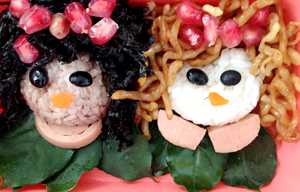
Cute boxed meals |
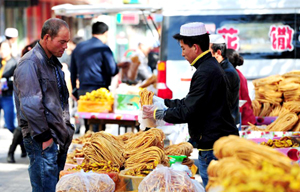
Muslims greet annual festival of Eid al-Adha in Yinchuan |
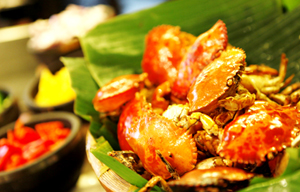
Cafe Noir hosts Singapore food festival |

Biting the spring |
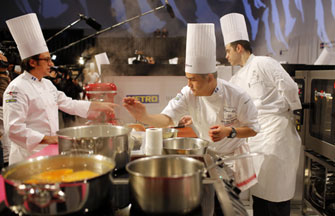
Bocuse d'Or Final gastronomic competition in France |
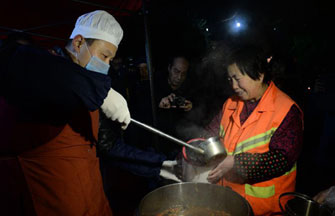
Temples in Xi'an distribute free Laba porridge |
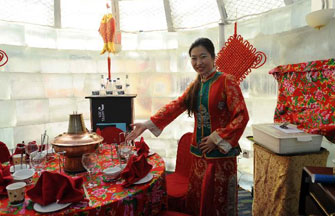
Ice house restaurant opens to public in Shenyang |